“Now that the National Assembly is making a law to create additional states for the people of Southeast, it is reasonable, fair and timely to create additional local governments for Lagos State.”
News
Bandits: Northern Nigeria, worst place to live, says Sultan
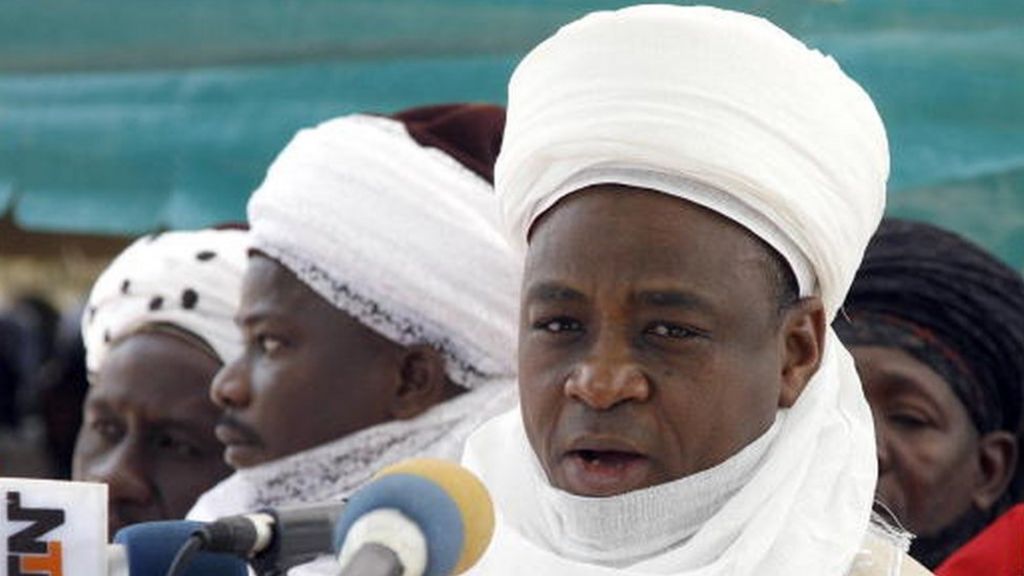
The Sultan of Sokoto, Alhaji Sa’ad Abubakar, says the North has become the worst place in the country to live as bandits operate freely, causing terror among the people.
The Sultan said this at the fourth quarterly meeting of the Nigeria Inter-Religious Council in Abuja with the theme, ‘Questioning for peace in the challenges of insecurity and COVID-19’
He said the security system in the North had completely collapsed making the bandits to become daring as they moved from house to house, village to village, market to market, with AK-47 rifles openly, purchasing foodstuffs and other items and even collecting change without any challenge from the security agencies.
He said, “Security situation in Northern Nigeria has assumed a worrisome situation. Few weeks ago, over 76 persons were killed in a community in Sokoto in a day. I was there with the governor to commiserate with the affected community.
“Unfortunately, you don’t hear these stories in the media because it’s in the North. We have accepted the fact that the North does not have strong media to report the atrocities of these bandits.
“People think the North is safe but that assumption is not true. In fact, it’s the worst place to be in this country because bandits go around in the villages, households and markets with their AK 47 and nobody is challenging them.
“They stop at the market, buy things, pay and collect change, with their weapons openly displayed. These are facts I know because I am at the centre of it.
“I am not only a traditional ruler; I am also a religious leader. So, I am in a better place to tell the story. I can speak for the North in this regard because I am fully aware of the security challenges there. We have to sincerely and seriously find solutions to the problem, otherwise, we will find ourselves soon in a situation where we would lose sleep because of insecurity.”
The Catholic Archbishop of Abuja Diocese, Ignatius Kaigama, outlined a code of conduct for both Christians and Muslims in Nigeria.
He said, “We Christians and Muslims must avoid imposing our religious views on others or denying them public amenities, jobs or influential positions because they don’t belong to our faith.
“Merit, not the vigour of our religious piety or affiliation should determine all we do or get in this country. We should not unjustly or corruptly deprive others of their rights, not to talk of wounding or killing anyone for economic or partisan political interests or because of blind religious zeal.
“It is preposterous that Nigerians clamouring for their rights and privileges from government would turn their anger on religious institutions by attacking Churches and Mosques, instigating Christians and Muslims to turn against one another or to destroy public amenities and infrastructure.
“We understand that the budget for national and state security is huge. Let us not deceive ourselves that the bigger the budget the more peace will flow. Weapons don’t bring peace.
“What we need is a change of attitude, a conversion of heart; an objective appraisal of the religious or ethnic indoctrination we perhaps were subjected to in schools or at home. If we are only propelled by religious interests that exclude others we shall always remain in chaos and darkness.
The President, Christian Association of Nigeria and co-Chairman of NIREC, Dr Samson Ayokunle, thanked God for saving the nation from the COVID-19 pandemic when compared to other country.
He also urged the government to reverse the recent decision to hike the price of electricity and fuel.
Ayokunle said, “That’s not what we send them to do for us. The decision, evidently, has added to our pains and they should reverse it as quickly as possible.
“The development that led to #EndSARS protest was quite unfortunate, and one of that development is police brutality which ought to be addressed before now.
“We have never witnessed such a mass action in Nigeria before. People were frustrated and because those in power didn’t respond appropriately until it degenerated to that level.
“But attributing the actions of the angry youths to a particular religion or ethnic group is insincere and unsafe. No religious group was exempted from the effect of the protest. The action was a spontaneous action that cannot be attributed to any religion or ethnic group.”
The Secretary to the Government of the Federation, Boss Mustapha, said, “Today, despite all efforts including the deployment of enormous resources, our country still faces a measure of insecurity which is impacting negatively on our economy, social life, education of children and young persons, investment and remains a threat to lives and livelihood.”
News
Protest: Police combat ready, deploy 4,200 operatives to FCT strategic places
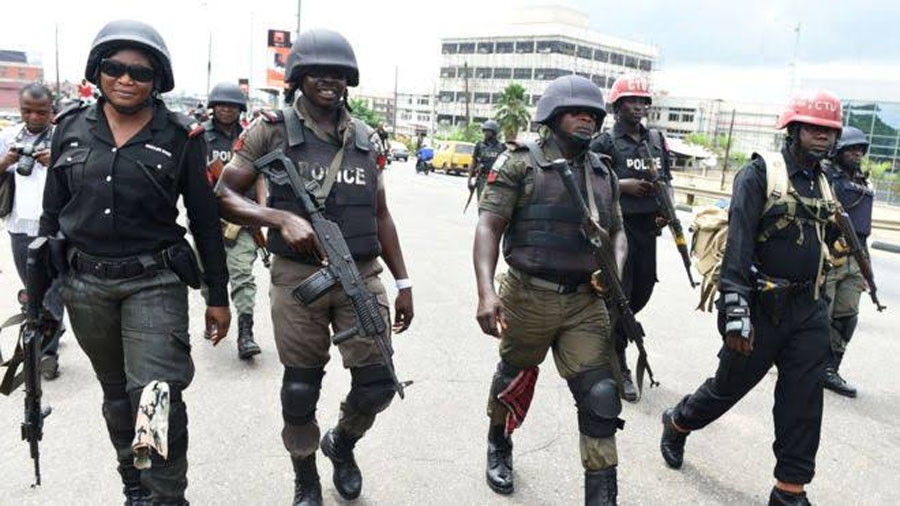
Protest: Police combat ready, deploy 4,200 operatives to FCT strategic places
The police say they are combat ready to crush any form of violence that may result from nationwide protests planned for next Thursday August 1 by some Nigerians against hardship and bad governance.
Indeed, starting with the Federal Capital Territory, Abuja, the police said it had deployed armed operatives to strategic locations.
The FCT Minister Nyesom Wike had earlier warned the organisers of the protest that Abuja would not be available for any rally or demonstration on August 1.
But a statement by Police Public Relations Officer, SP Josephine Adeh, in Abuja on Friday, said the FCT Command had deployed a total of 4,200 police officers to curb any form of violence that might arise from the protest.
The command was reacting in anticipation of the planned nationwide protest by some human rights activists and Nigerian youths, to publicly express their displeasure over hunger and hardship.
The planned protest has since generated massive traction on social media, especially on X.
According to Adeh, the command has proactively deployed material and human resources across the nooks and crannies of the nation’s capital.
The deployment, he said, was aimed at ensuring public safety, protecting protesters, and preventing protests from being hijacked by non-state actors.
The police command said the action was part of visibility policing, involving deployment of explosive ordinance devices (EOD) experts, and personnel at various strategic locations, raids on identified black spots, uncompleted buildings/shanties, stop and search, vehicular and foot patrol, and synergy with sister security agencies.
The Commissioner of Police FCT, Benneth Igweh, while acknowledging the right of residents to protest, advised that it should be peaceful.
He wrote, “The CP vows to resist all forms of violent protest and lawlessness, as the police will not be stampeded into allowing the destruction of public and private properties or loss of lives.
Residents are also advised to be vigilant and take advantage of the police emergency lines, to report suspicious activities through 08032003913, 08028940883, 08061581938, 07057337653 PCB: 09022222352, and CRU: 08107314192.
News
National Assembly urged to create more councils for Lagos

National Assembly urged to create more councils for Lagos
National Assembly has been urged to create more local governments for Lagos State, to meet its current population, social, economic and environmental challenges.
The Red Chamber is also advised to enact laws granting the state a special status for being the country’s commercial city and economic melting pot.
Renowned socio-political activist and critic, Chief Adesunbo Onitiri, made the demands in a statement in Lagos.
The activist recalled that in 1976 when the military government created states and local governments, Lagos and Kano states had 20 councils each.
“Later, Kano State councils increased to 44, while Lagos councils remained at 20. When the Abacha government carved out Jigawa State out of Kano State, Jigawa got 27 local governments, while Kano was still having 44 councils.
READ ALSO:
- Kano bakers summoned over bread price hike
- FG warns LG chairs misusing FAAC funds will face jail term
- PSG not giving up on Osimhen, seek further slash in price
“It is an injustice for Lagos State to remain with only 20 local governments till today, despite its gigantic social, security and economic problems,” Onitiri said.
He recalled that when the then Governor of Lagos State, now Nigeria’s President, Asiwaju Bola Ahmed Tinubu, created 37 additional councils in 1999, Chief Olusegun Obasanjo, then President, seized Lagos State federal allocations for two years.
He said Lagos State through the then Attorney-General, Prof. Yemi Osinbajo, sued the Federal Government, and the state government won the case against Federal Government at the Supreme Court.
He regretted that till now, National Assembly has not done the needful to enact a law to accommodate the 37 local governments created by Lagos State Government.
News
FG warns LG chairs misusing FAAC funds will face jail term
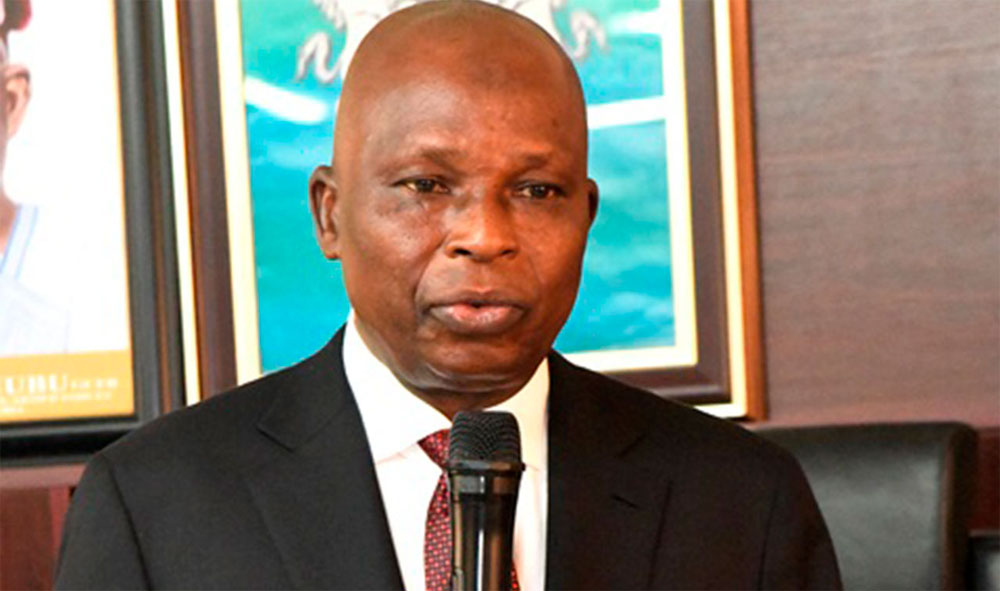
FG warns LG chairs misusing FAAC funds will face jail term
The Federal Government has threatened jail terms for Local Government Area chairmen who tamper with Federation Accounts Allocation Committee funds.
Lateef Fagbemi (SAN), the Attorney General of the Federation and Minister of Justice, made the announcement yesterday at the Human Rights Writers Association of Nigeria’s 17th annual lecture event in Abuja.
He stated that none of the chairmen have immunity and will be imprisoned if they tamper with funds designated for the development of their areas. Fagbemi stated, “We have a situation on our hands; I know that it is still there; the conduct of elections must be done by the states.”
“But the distinction is this: don’t forget, the governors have immunity, the local government council chairmen or councillors, they have no immunity, so they have to choose between dealing with the funds of the local government as they like and risking going to jail. The choice is theirs (LG chairmen).
“If they want to tamper with these funds and end up in jail, it is their choice. If they want to write their names in letters of gold, activities like construction or road upgrades must be returned to the local government. They don’t all have to come to Abuja.
READ ALSO:
- PSG not giving up on Osimhen, seek further slash in price
- Saudi duo to bid for Osimhen amid PSG stalled deal
- FG rolls out fresh plans to revive local manufacturing, create 4.4 million jobs
“If they stay at the local government, we will be able to reduce the level of insecurity that we have in Nigeria today. What obtains offshore is that the security agents are able to perform optimally because of information that comes to them from members of the public and usually it is from the grassroots.”
The minister said the federal government opted to use the supreme court to achieve local government autonomy due to the challenges it will face at state assemblies, stressing that any speaker who would have supported the cause will not survive the tenure or lose his reelection.
The Minister stated that for over two decades, local government administration in the country has been in comatose with state governments not remitting funds meant for the local governments.
Fagbemi, who urged security agents in the country to stop keeping suspects in detention beyond the period allowed by the constitution, added that detention without any court order will no longer be tolerated as appropriate sanctions will be applied to those found guilty of contravening the law of the land.
On his part, the National coordinator of HURIWA, Comrade Emmanuel Onwubiko, urged the federal government to cut down on the cost of governance.
He blamed corruption for the insecurity and high unemployment rate in the country, which is responsible for impending protests in the country.
FG warns LG chairs misusing FAAC funds will face jail term
-

 News2 days ago
News2 days agoNLC can’t withdraw from protest it didn’t organise – Ajaero
-

 News3 days ago
News3 days agoNorthern group attacks Reps Minority Caucus for demanding Nnamdi Kanu release
-

 News3 days ago
News3 days agoMinimum wage: Akpabio says domestic workers can’t earn less than N70,000
-

 News2 days ago
News2 days agoFG unveils training programme for 1,000 Nigerians in AI, blockchain
-

 International17 hours ago
International17 hours agoNetanyahu, Biden hold talks over tense Gaza ceasefire
-

 Africa3 days ago
Africa3 days agoDozens arrested in Uganda anti-government protests
-

 metro2 days ago
metro2 days agoPastor remanded for allegedly defiling teenager, attempting abortion
-
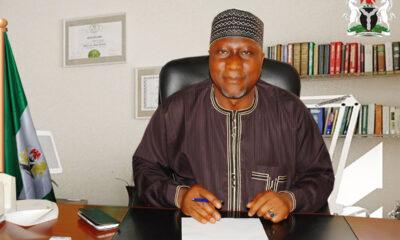
 metro1 day ago
metro1 day agoNERDC Executive Secretary Prof Ismail Junaidu slumps, dies





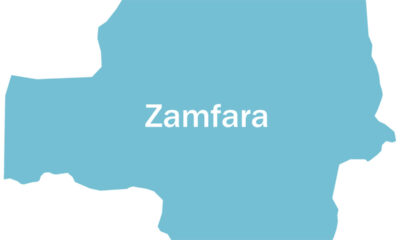








You must be logged in to post a comment Login